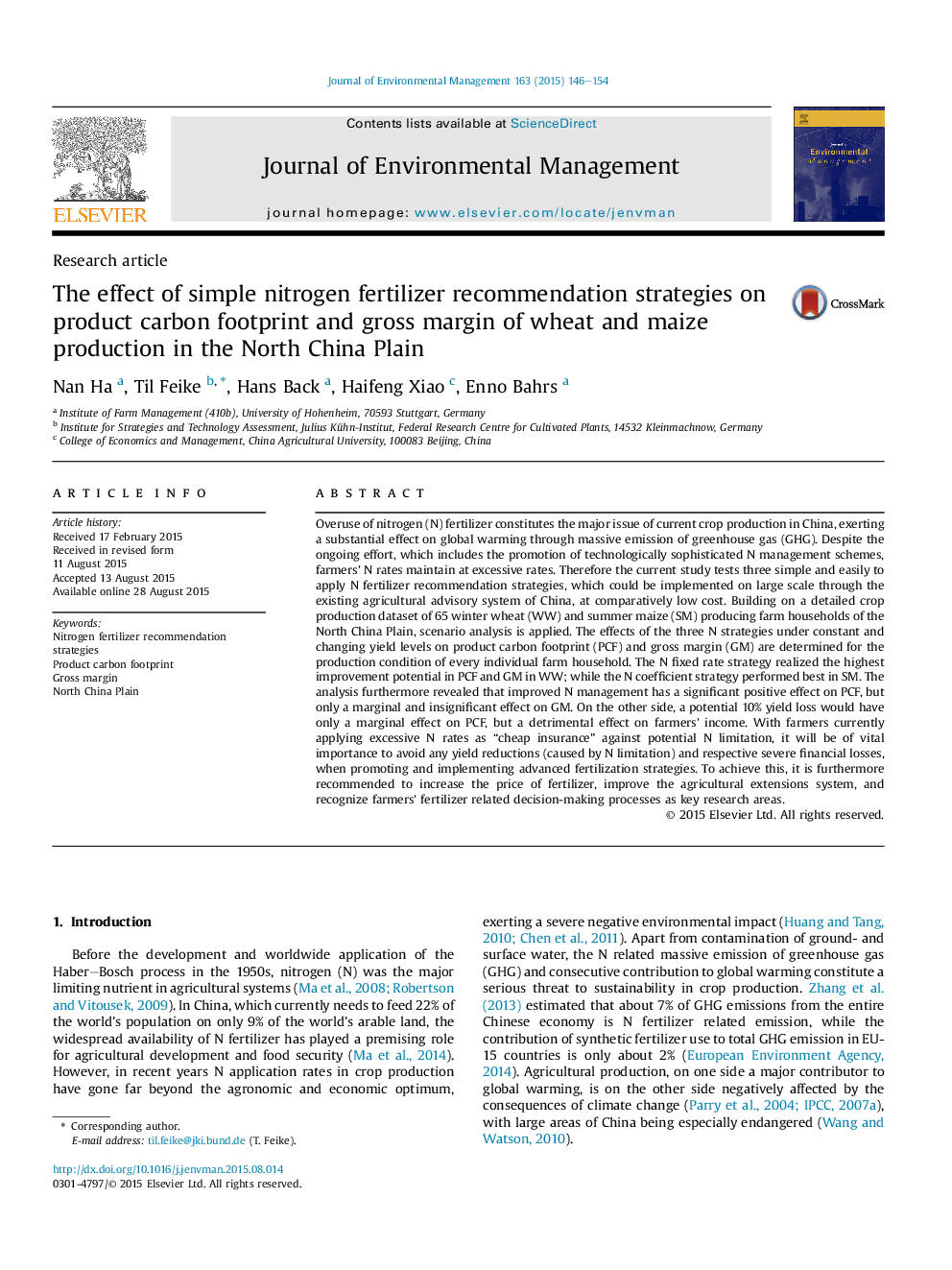| Article ID | Journal | Published Year | Pages | File Type |
|---|---|---|---|---|
| 1055522 | Journal of Environmental Management | 2015 | 9 Pages |
•Nitrogen fertilization strategies (NFS) are tested to reduce N overuse at low cost.•Product carbon footprint (PCF) and gross margin (GM) used as key-indicators.•Farmers' performance tested under NFS and yield change scenarios.•NFS has a significant positive effect on PCF, but an insignificant effect on GM.•Yield loss has marginal effect on PCF, but detrimental effect on GM.
Overuse of nitrogen (N) fertilizer constitutes the major issue of current crop production in China, exerting a substantial effect on global warming through massive emission of greenhouse gas (GHG). Despite the ongoing effort, which includes the promotion of technologically sophisticated N management schemes, farmers' N rates maintain at excessive rates. Therefore the current study tests three simple and easily to apply N fertilizer recommendation strategies, which could be implemented on large scale through the existing agricultural advisory system of China, at comparatively low cost. Building on a detailed crop production dataset of 65 winter wheat (WW) and summer maize (SM) producing farm households of the North China Plain, scenario analysis is applied. The effects of the three N strategies under constant and changing yield levels on product carbon footprint (PCF) and gross margin (GM) are determined for the production condition of every individual farm household. The N fixed rate strategy realized the highest improvement potential in PCF and GM in WW; while the N coefficient strategy performed best in SM. The analysis furthermore revealed that improved N management has a significant positive effect on PCF, but only a marginal and insignificant effect on GM. On the other side, a potential 10% yield loss would have only a marginal effect on PCF, but a detrimental effect on farmers' income. With farmers currently applying excessive N rates as “cheap insurance” against potential N limitation, it will be of vital importance to avoid any yield reductions (caused by N limitation) and respective severe financial losses, when promoting and implementing advanced fertilization strategies. To achieve this, it is furthermore recommended to increase the price of fertilizer, improve the agricultural extensions system, and recognize farmers' fertilizer related decision-making processes as key research areas.
